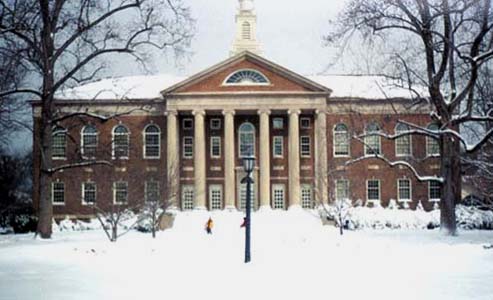

COURSE NOTES -
WEEK ONE - October 3-9, 2005
Blackboard for posted readings. Return to Schedule
Monday, October 3 and Wednesday, October 5
In preparation for class, for Monday, please read the Bates article (available in Blackboard under the readings for Week One). This first reading is the most theoretical. I selected it for several reasons. Marcia Bates is an important researcher in our field and one whose name you should recognize. She is also an integrator who regard the library/information field as one broad discipline rather than two (or more) separate areas. This article reflects that position and talks about some fundamental issues for the field. Consider some of the questions below and come to class prepared to talk about them.
1. As is typical of theoretical writings, the author begins with some definitions of three key terms -- Information 1, Information 2, and Knowledge. Her definitions are given on p. 18. How do these definitions fit your own way of thinking about these terms?
2. What else have you read on this topic? Look at the bibiliography at the end of the article and see if there are any authors and articles you recognize.
3. Do you agree with Bates that we need to distinguish between information as it exists in the universe and information as it is perceived and used by animate beings?
4. How do Bates' definitions of Data (1 and 2) relate to your own thoughts? Do you think she makes a good case for the distinctions that she draws?
5. In Part 2 of her essay, Marcia Bates raises a number of questions. Her first is, "Does information exist in a material sense?" How would you answer this?
As an advocate of a constructionist approach to learning, I like the connection that Bates makes between our field and evolutionary biology and psychology, particularly for the concept of "emergent understandings." Do you see any practical applications of this concept for information storage and retrieval systems? for information transfer as in reference situations?
As an optional and fun reading, I included an article with
the great title "Father Google & Mother IM" about some of the
characteristics of what she calls the "NetGen." Do you see yourselves as
part of this group? Do you agree with her statements about what students
want in their classes today?
Today we will be listening a talk by Jimmy Wales, the
founder of Wikipedia and
other Internet tools. We may have little or no time for class-only
discussion. If this is the case, save any comments you have about either
of the previous two readings or the two readings assigned for today. Some
thought questions follow:
If you get this far and are still looking for something to
stimulate your brain cells, you might access Gregory Gromov's History of
the Internet. Comment on whether you find the presentation style used
in this history helpful or
frustrating.
Revised Oct. 3, 2005.
Wednesday, October 5
If you have questions or suggestions, please
contact
Evelyn Daniel